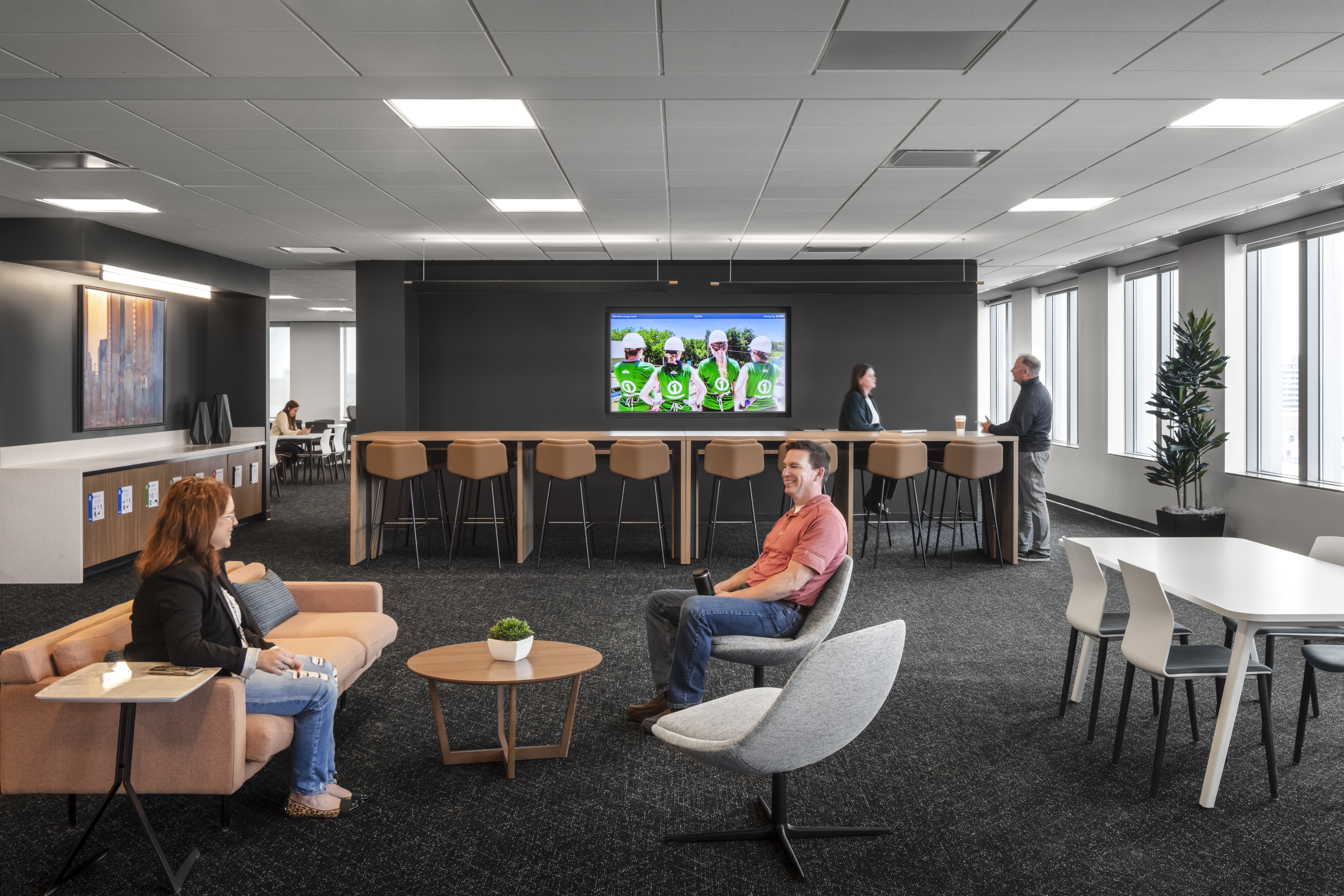Remote work spiked to an all-time high in the first two years of the COVID-19 pandemic. Many companies declared that employees would be able to work from home — or anywhere they chose.
Corporate profits and labor productivity also spiked, at least in part due to remote work. Research shows that remote employees are more productive than their in-office peers.
Plummeting unemployment rates created a tight labor market. Embracing remote work meant companies could expand their search for new talent beyond their immediate geographic area. It seemed like remote work was here to stay.
On the other hand, a recent Gallup survey shows that remote and hybrid employees are feeling increasingly distant from their organizations’ mission and purpose, making the case for bringing team members back into the office in order to increase engagement.
Shifting away from remote work
In 2023 many companies that had previously allowed employees to work remotely full time are asking them to return to the office — at least part of the time.
Large tech companies like Amazon, Facebook, Google and even Zoom, are reversing course on work from anywhere policies they adopted during the pandemic. Their new solution: hybrid work arrangements that require team members to return to the office for a set number of days per week.
While Nebraska companies tend to lag behind trends on the coasts, that’s not the case when it comes to returning to the office. Several Nebraska-based companies, including First National Bank of Omaha, are adapting the physical spaces where employees work to make the return to office more attractive.
More flexible layouts, rich in technology and amenities, with plenty of collaborative spaces are becoming the norm in Omaha, said Chris Mensinger, Senior Vice President, Brokerage Services at Colliers Nebraska.
“Employers want their employees to be proud of where they work, and be excited to go to work. Physical space kind of helps us create an environment and a culture that brings people in.”
First National Bank of Omaha is among the Omaha companies that invested in upgrading their workspace as a result of the pandemic.
“We were modernizing our space at a very measured pace prior to COVID — and made the decision during 2020 to move forward at a much faster pace… and consolidate where possible into our corporate headquarters,” said FNBO’s Senior Vice President of Human Resources Ken Bunnell.
“These modernization efforts support working differently — intentional design of spaces that support and facilitate flexibility, collaboration and mobility.”

Creating more flexible workspaces
Workers’ desire for more flexible workspaces that prioritize safety and comfort was a direct result of the pandemic, said Gretchen Golter, Vice President and Design Director at All Makes, a company that provides office furniture and commercial design services.
“It started out obviously, that individuals did not want to be as close to each other even as they came back to the office,” Golter said. “They had been acclimated many times to working from home, so they also wanted a less structured environment.”
“Are there areas that they could work in that would reflect something more like the work from home option that they had? How could we have a meeting without necessarily sitting in a conference room, shoulder to shoulder?”
Golter said employees today want choices when it comes to how and where they work when they come into the office. She said that technology is an important consideration to enable “seamless productivity and connectivity” wherever they are in the building.
Companies are moving away from dedicated workstations in favor of a mix of private rooms for one or two people and larger spaces for collaboration that is not confined to a conference room.
Bunnell said FNBO’s approach to updating their space was about balancing what he called “me spaces” and “we spaces” to support team members in accomplishing whatever they need to get done whether it’s focusing, collaboration, socializing or rejuvenation.
“This provides the optimum space to support activity and individual choice as to where to work.”
Upgrading amenities
Demand for Class A office space — the most modern, best-located buildings with lots of amenities — remains strong in Omaha, Mensinger said. Besides companies, commercial landlords who can afford to are investing money to improve their spaces to make them more appealing in response to the demand.
Amenities are designed to support productivity and employee wellbeing. These could include nearby or on-site options for food and coffee, a fitness center, outdoor areas, indoor plants, private phone booths, adjustable height tables, automatic doors and comfortable seating.

“[At FNBO] we’ve added more amenity spaces — cafeteria, coffee shop, outdoor patio, meeting and social spaces throughout our corporate space,” Bunnell said.
Coworking spaces are another option for companies who are looking for amenities, but aren’t ready to invest in the improvements or commit to long leases. Coworking spaces can give smaller companies the ability to expand and contract with various layouts on the market.
Modus Coworking opened in downtown Omaha in 2021. Modus has 11 conference rooms and 70 desks across two floors totalling 20,000 square feet and is available to members 24/7. Modus Co-founder and President Rahul Agarwal said the space is popular among entrepreneurs, independent contractors and startups. The space is also utilized by larger companies seeking flexible or shared office spaces for remote workers or all hands meetings.

Agarwal said they integrated safety amenities like a state-of-the-art air conditioning system with air quality monitors and UV lights that filters “hospital-quality air” throughout the building. They were able to integrate these features because the building was still under construction when the pandemic started. He said these amenities will help tenants feel safer in the event of a future pandemic.
Besides flexible spaces and safety measures, Modus has a gym and coffee shop on-site. Members also have access to vetted business resources and networking opportunities as part of their membership.
Finding community at work
Networking and the ability to be a part of a community are part of the allure for tenants at another downtown coworking space Elevator Co-warehousing (where the SPN office is located), according to Elevator Co-founder and CEO Emiliano Lerda.
Elevator offers flexible space options and logistical support for small or growing businesses with physical goods like e-commerce startups. Lerda said the pandemic accelerated e-commerce growth and led to increased demand for warehousing space and “passion-pursuit entrepreneurship”. It also accelerated demand for flexible workspace, including co-working, as companies shifted to hybrid or remote work arrangements, he said.
Lerda said he and his co-founder, who is also his wife and previous business partner, saw an opportunity to take advantage of increased demand in both areas by opening Omaha’s first co-warehousing / coworking facility.
“I have seen a lot of national companies that have employees all over the country that want to continue to work remotely,” Lerda said. “They are taking coworking memberships that provide a satellite space for the remote workers to go work from an actual office… to separate the home or apartment from work. It’s another thing that we all learned from COVID — not everybody enjoys working from home.”
Similar to Modus, Elevator provides tenants with regular networking events and learning opportunities.
The future of office space
One trend that hasn’t reached Omaha: Increased commercial real estate vacancy rates. While larger markets like New York City and San Francisco saw declines in the demand for commercial space, demand in Omaha has remained steady, Mensinger said.
Mensinger said office vacancy rates in Omaha remain low at around 8%. She said part of that is a factor of commercial leases tending to be 7-10-year commitments. That means many companies still had years left on their leases when the pandemic hit, so they continued to occupy the space even if they did so with fewer employees.
A McKinsey study estimates that office attendance has stabilized at 30% below pre pandemic norms.
Mensinger said commercial rents may rise in response to high demand and interest rates as more companies’ leases end. That could result in more demand for flexible coworking spaces.
As for Class B office spaces like call centers, Mensinger said the owners of these buildings are exploring converting existing floor plans into mixed use or multi-family properties due to lagging demand. She said this is happening in Midtown Omaha as well as suburban locations.
Mensinger has advice for businesses that are considering moving to a new space based on their post-pandemic reality. She said getting started early and engaging employees in the process is critical.
“These deals are taking likely over a year to put in place and really do the analysis of what the needs are — and that’s for existing construction. If you’re looking for new construction, you could be two or three years out. So I think it’s important to get started earlier than maybe you had in the past. And I think being really thoughtful about the flexibility of the space that you are creating for your employees. And engaging your employees by asking them: What’s important to you? What would bring you back into the office?”




